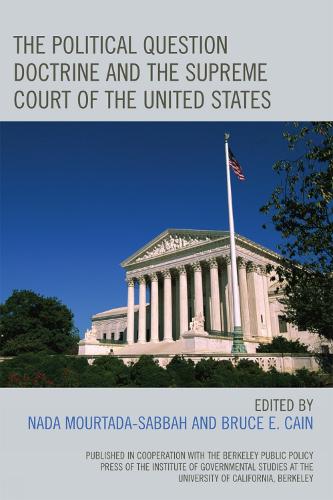
The Political Question Doctrine and the Supreme Court of the United States
(Paperback)
Publishing Details
The Political Question Doctrine and the Supreme Court of the United States
By (Author) Nada Mourtada-Sabbah
Edited by Bruce E. Cain
Contributions by David Gray Adler
Contributions by Pierre Avril
Contributions by Rachel E. Barkow
Contributions by Jesse Choper
Contributions by Erwin Chemerinsky
Contributions by Louis Fisher
Contributions by John W. Fox
Contributions by Richard L. Hasen
Bloomsbury Publishing PLC
Lexington Books
1st February 2007
United States
Classifications
Professional and Scholarly
Non Fiction
Constitutional and administrative law: general
Constitution: government and the state
347.7312
Physical Properties
Paperback
282
Width 153mm, Height 227mm, Spine 21mm
413g
Description
The application of the Political Question Doctrine is at a crucial crossroads as the Supreme Court continues to test new "War on Terrorism" initiatives. Historically, the political question doctrine has held the courts from resolving constitutional issues that are better left to other departments of government, as a way of maintaining the system of checks and balances. However, the doctrine's many ambiguities have allowed a roughly defined juxtaposition of the branches of government during previous years when the Republic was concerned with both international matters and those within its continental confines. The Political Question Doctrine and the Supreme Court of the United States discusses the gradual changes in the parameters of the doctrine, including its current position dealing with increasingly extraterritorial concerns. Nada Mourtada-Sabbah and Bruce E. Cain bring together critical essays that examine the broad issues of judicial involvement in politics and the future of the doctrine. With a wide range of historical and theoretical perspectives, this book will stimulate debate among those interested in political science and legal studies.
Author Bio
Nada Mourtada-Sabbah is associate professor of political science and chair of the Department of International Studies at the American University of Sharjah. Bruce E. Cain is Robson Professor of Political Science and director of the Institute of Governmental Studies at UC Berkeley and the UC, Washington Center.
